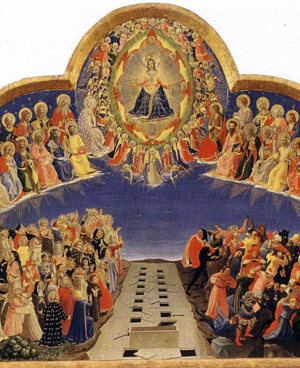
Lecture: “The Eschatology of Thomas Aquinas: Distinctive Aspects & Ongoing Relevance”
Fr. Bryan Kromholtz (Dominican School of Philosophy & Theology, Berkeley)
Despite leaving his Summa Theologiae bereft of a section on eschatology, St. Thomas in other works engaged extensively with matters related to the Final End. Considering these teachings in how they relate to his theology as a whole, our presentation will focus on some of the features of these teachings that distinguish them from those of his contemporaries (notably, St. Albert the Great and St. Bonaventure). Such features include: (1) his argumentation from reason for why there will be a general resurrection; (2) how loss of the body adversely affects the separated soul’s natural cognition; (3) how God’s essence is really known by the blessed souls; and (4) the risen body’s causing the saints’ beatitude to increase merely extensively and not intensively. These features in the Common Doctor’s eschatological teaching consistently affirm – as does his doctrine in general – the inherent unity of the human soul and body. This view of the spiritual-material integrity of human persons, and their place under God and in the world, can contribute today toward a theology that retains a high regard for the body and the created world while calling wayfarers to look for the second coming of Christ and to hope for a participative union with the eternal God in the life of the world to come.
Image: Bl. John of Fiesole (Fra Angelico), Last Judgment (1425–1428; tempera on panel; Florence, Museo di San Marco)


